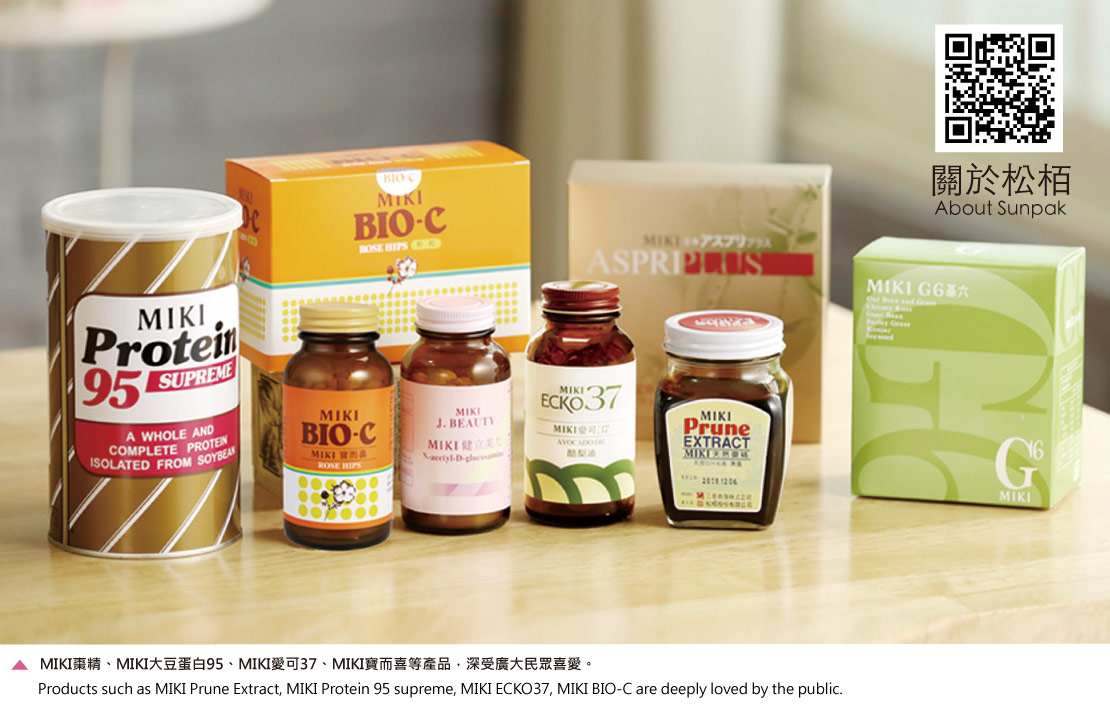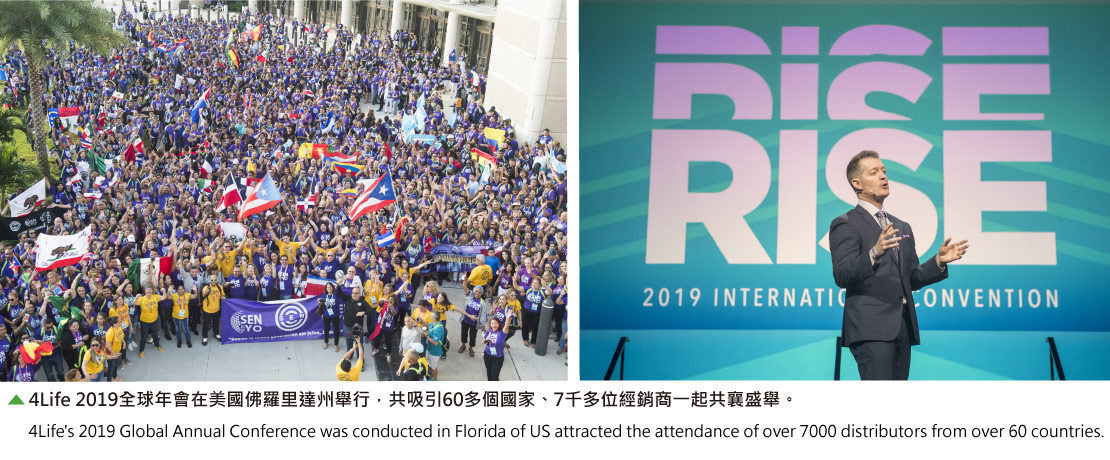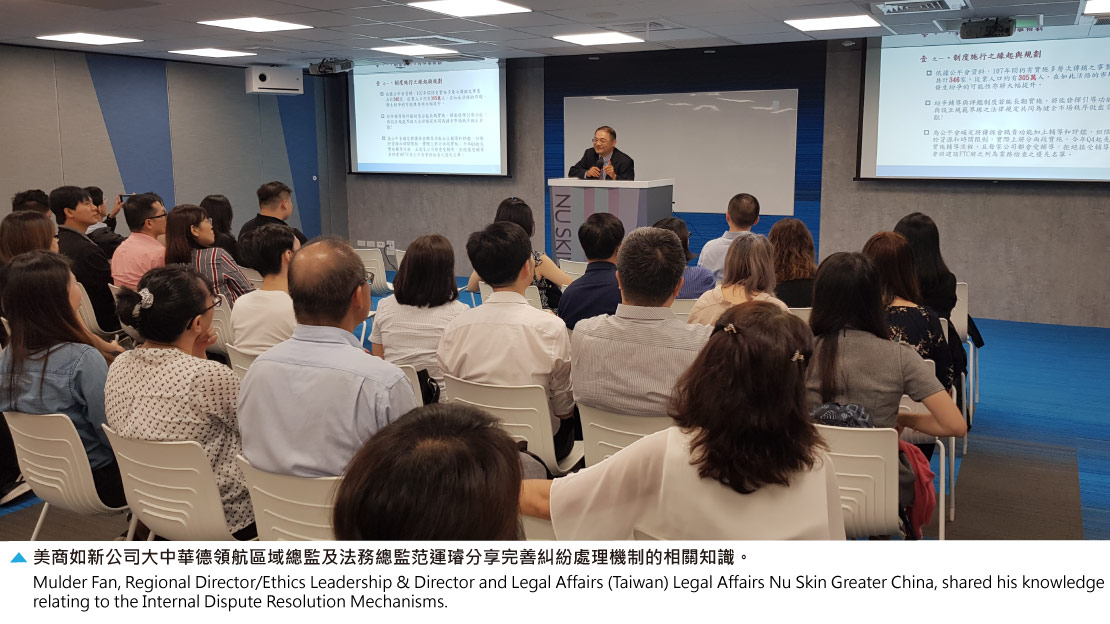

Sunpak Corporation Inviting You to Be Healthy Individuals in the 21st Century
Founded in 1985, Sunpak Corporation brings the concept of a balanced diet to the people by promoting the MIKI nutritional supplements from Japan. Under the rationale of nature and safety, Sunpak is constantly developing nutritional supplements most suitable for the consumption of modern people. In particular, MKI Prune Extract is even certified as Japanese Space Food by the Japan Aerospace Exploration Agency (JAXA). Sunpak expects to share a beautiful, healthy, and rich life with more people in the future.
Address: 4F, No.309, Songjiang Rd., Taipei
City 105, Taiwan R.O.C.
Tel: 02-25080202


Work with Fun! Creative Playground for Work in Atomy Park
Established in Gongju of Korea in April 2019, Atomy Park, which houses Atomy's headquarters, has a land area of 8,000 pings (26,400 m2) and received the 2019 Architecture MasterPrize - Winner in Architectural Design / Mixed Use Architecture Award in the US shortly after its launch. Featuring a gym, a beauty salon, and swing style meeting rooms, the park create a magical work space like a theme park. According to Park Han Gill, Atomy's founder, the exquisite design of different kinds of creative space seeks to encourage the employees to engage in natural exchanges in an entertaining environment like Google's headquarters and to find the DNAs for innovation in unconstrained space.


Rising against All Odds, 4Life Achieved New High in Monthly Global Revenue
In September 2019, 4Life achieved a new high in its monthly global revenue in its history and broke its historical records. In Taiwan, 4Life also achieved shiny performance as well. In addition to various reforms such as a more generous compensation system and more solid training programs and workshops, 4Life was also recognized by receiving the Chinese Public Welfare Integrity Brand Golden Award, thanks to its good brand image for many years. Its new product PRE/O Biotics received very positive coverages by many media shortly after it was launched in the market. A steady increase in its popularity on the Internet has contributed to the great sales performance of the product. It is believed that 4Life will continue to leap forward against all odds.


Resounding Success of the Forum on the "Tips for Creating Dispute Resolution System"
Since the Evaluation of the Internal Dispute Resolution Mechanisms of Multi-level Marketing Enterprises, which the Multi-Level Marketing Protection Foundation was authorized to conduct by the Fair Trade Commission, will be launched soon, the Code of Ethics Committee of the Direct Selling Association (DSA) organized the Forum on the "Tips for Creating the Dispute Resolution System" on October 3. The Forum was specifically held to introduce the importance of a dispute resolution system and the methodology for preparing for the Evaluation on the Internal Dispute Resolution Mechanisms of Multi-level Marketing Enterprises so that the participants could fully understand and get ready for such evaluation. To ensure that our member companies can pass the evaluation smoothly, the Taiwan DSA's Secretariat will circulate a self-evaluation form (provisional) to the member companies in the hope that they will conduct a self-evaluation in advance to create a sound dispute resolution system.


Attention Everyone! 2019 Competition for the Design of Code of Ethics Marks for Distributors
To attract the public to understand the core spirit of the DSA and its Code of Ethics more proactively and enhance the people's awareness and perception of the Code of Ethics, the Competition for the Design of Code of Ethics Marks for Distributors will be conducted. Design experts are welcome to demonstrate their creativity by creating a mark with high brand distinctiveness and easy association so that the Code of Ethics can be promoted with an indicative emblem. Meanwhile, the contestants will identify with the Code of Ethics after understanding and internalizing it. The final will be conducted by selecting innovative new marks which are professional, aesthetically appealing and agreeable to the people via online voting in order to boost online discussions about the Code of Ethics.


TFDA Explained about the Requirements for Sweetness Claims such as "Slightly Sweet" and "Unsweetened" in the Labeling of Packaged Products in the Market
The Taiwan Food and Drug Administration (TFDA) explained about the requirements for sweetness claims such as "slightly sweet" and "unsweetened" in the labeling of packaged foods in the market on September 20, 2019. The TFDA considered that since the consumers regard the sweetness claim in the labeling of products as a reference for sugar content, if a product does not meet the requirements for the sweetness claim such as "slightly sweet" or "unsweetened" under the Guidelines for Nutritional Claims of Packaged Foods, the labeling of "slightly sweet" or "unsweetened" may be misleading to the consumers. According to the TFDA, the labeling of packaged products sold in the market (based on the production date of the product) should be conducted pursuant to the above requirements beginning with July 1, 2021. Otherwise, the provision concerning misleading food labeling under Article 28 of the Act Governing Food Safety and Sanitation will be deemed violated, and a penalty may be imposed in accordance with Articles 45 and 52 of the same law.


If the parties have come up with a preliminary mediation proposal in the first round of the mediation procedure, can a distributor make a new mediation proposal in the second round of the mediation procedure?
If a direct selling company and a distributor are in dispute, the parties will negotiate remedial or compensatory arrangements or enter into a new relationship of rights and obligations in the mediation procedure. Once a mediation is effective with mediation conclusions reached, the parties have reached a mediation agreement. At this juncture, the parties are obligated to comply with the mediation agreement and perform the mediation conclusions. Therefore, a direct selling company and distributor should convey their opinions as much as they can. Otherwise, if the mediation conclusions turn out to be unacceptable and they subsequently change their minds and refuse to perform, this exercise will be absolutely meaningless. Therefore, the parties should ensure that the mediation solution is desirable or acceptable.
In practice, a common scenario is that the direct selling company and the distributor have exchanged their views and come up with the preliminary mediation proposal in the first sound of the mediation procedure. After bringing this preliminary mediation proposal back to the company, the representative of the direct selling company then files the internal application and the company also approves the mediation proposal. However, after returning home, the distributor may have a second thought and believe that this mediation proposal is not quite deal. As a result, the distributor then indicates the intention to propose a new mediation solution and to reopen the discussion between the parties in the second round of the mediation procedure when the mediation document is supposed to be signed by the parties. The direct selling company in turn indicates that the new mediation proposal has to be brought back to the company for discussion. Thus, the third round of mediation is required. This practice is not only time consuming to the parties, but also is conducive to losing mediation timing due to changes to mediation proposals.
Since the mediation solution should be mutually acceptable and the parties are subsequently required to follow the mediation solution, both the direct selling company and the distributor should ensure that the mediation solution negotiated in the procedure is acceptable. Even though it is not prohibited to propose a new mediation solution in the next round of mediation, still this also allows the other party to change its mind or refuse to accept the mediation, and the new mediation proposal is certainly subject to the other party's acceptance, too.
[Excerpt from the Practical Direct Selling Legal Issues]


